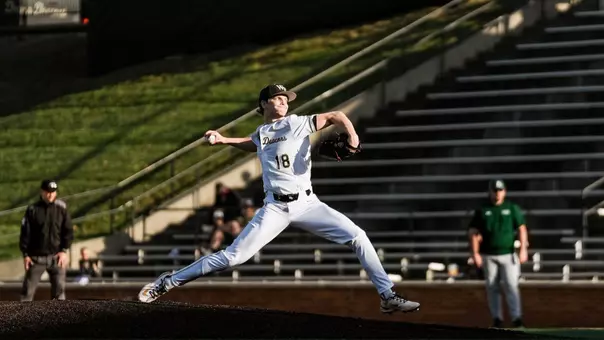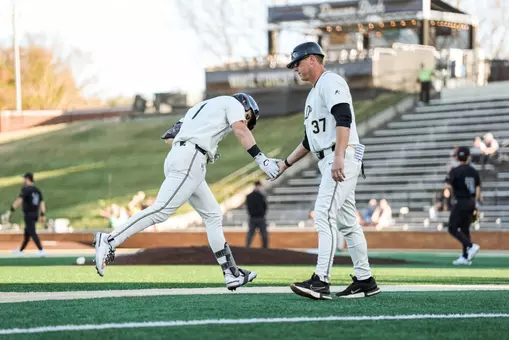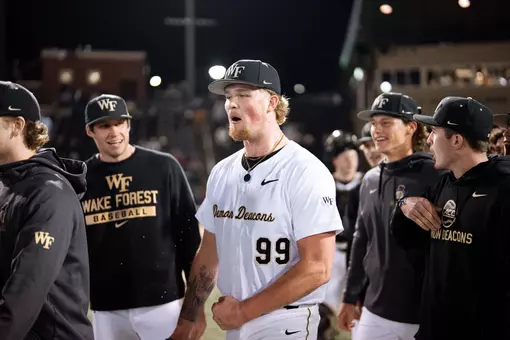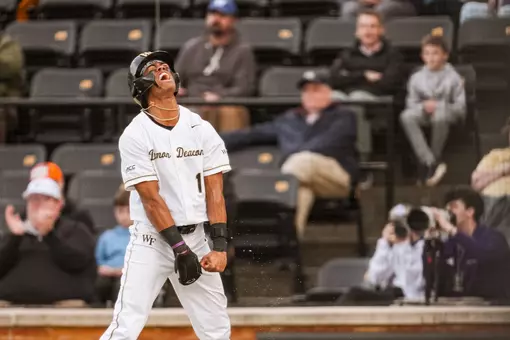Wake Forest Athletics
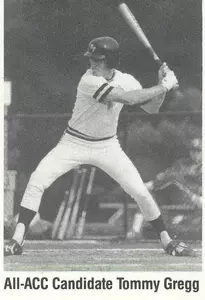
Gold Rush Feature: Hitter for Life
10/29/2010 12:00:00 AM | Baseball
Oct. 29, 2010
This article was originally published in the Oct. 16 edition of Gold Rush.
By Jay Reddick
Hitting helped Tommy Gregg to a 10-year major-league baseball career, but since his retirement in 1997, Gregg has been passing on his knowledge of hitting to players from age 7 to 37.
Gregg's paying job is with the Kansas City Royals as the hitting coach for their Triple-A minor-league team in Omaha, but that only lasts from late February to early September. For the rest of the year, in the garage of his Georgia home, he tutors young people on the art and mechanics of hitting.
The Wake Forest Hall of Famer, a 1985 alumnus, said the free private lessons started about eight years ago in Peachtree City, Ga., spurred on by Gregg's long career as a member of the nearby Atlanta Braves.
"People in the neighborhood were finding out I lived here and I was coaching, and parents started to ask me to give their kids pointers on hitting," Gregg said. "It started really small, but then it grew."
As more people asked, Gregg first rented a dormant warehouse to house a batting cage. Later, when his family moved, he built a 50-foot garage just for hitting. Since then, he has given as many as 40 lessons a week, though he's trying to cut back his schedule to three days of clinics.
He'll teach anybody from 7-year-olds whose parents are eager to get them started the right way in the sport, to college-age players who have been students of Gregg's for years.
"Hitting has been my life," Gregg said. "It's the part of baseball I always enjoyed the most as a player, and I have a passion for it. I want to see the kids have fun, but I get the joy of making a kid from nothing into a pretty good hitter."
A couple of Gregg's pupils have gone on to play for small-college teams, and he said he believes one or two of his current students are pro prospects.
Gregg's philosophy in teaching young people is to keep things simple and teach basic swing mechanics.
"I don't teach any crazy stances or anything -- just good posture, little or no stride, wait for a good pitch and get the barrel to the ball on time. It's about developing that instinct and that swing."
His coaching in the professional ranks is completely different -- it's not about teaching players how to swing, it's about giving them the confidence and the knowledge to do it well and at the right time.
"At those guys' age, mechanics are off the table," Gregg said. "They've been taught how to swing, and that muscle memory is locked in for the most part. If you try to change that too much, players get frustrated and always go back to what they've done before anyway.
"For me, it's about having a mental plan, using common sense in picking the right pitches to hit, and building confidence."
One of Gregg's recent success stories was the Royals' Alex Gordon. The fourth-year outfielder began the 2010 season in a horrible slump, hitting .194 in 12 games through April and May before Kansas City sent him down to Omaha.
"I had seen him play in spring training, and thought I knew what was wrong with him, but I didn't know him well enough to try to change him," Gregg said. "When they sent him back to me, we built some trust and I could tell him what I thought. We changed a couple of little things (in his swing), but really it was about learning to enjoy baseball again."
In 68 games with Omaha, Gordon hit .315 with 15 home runs and was named a Pacific Coast League All-Star. In August, his first full month back with the Royals, he hit .264.
"I take a lot of pride in helping Alex," Gregg said. "That's my job -- helping guys get better, and helping the big-league club."
For Gregg, 47, his own big-league call-up could happen anytime. He'd still like a shot at managing on some level. But for now, he's enjoying the balance of family life with his wife and two daughters and the game he loves.
Gregg Profile:
Birthdate: July 29, 1963
Education: Wake Forest (BA, 1986)
Family: Wife, Tonya; daughters Rachel (7) and Jordan Grace (10)
Deacon Pride: "I love seeing the program's progress -- the facilities are better, the atmosphere is better, and the student support is better. I look at the facilities they have now, and I'm a little jealous. But what's never changed about Wake Forest athletics is that no matter who we're playing, no matter what size or ability, we never quit. We'll give you a run for your money."
